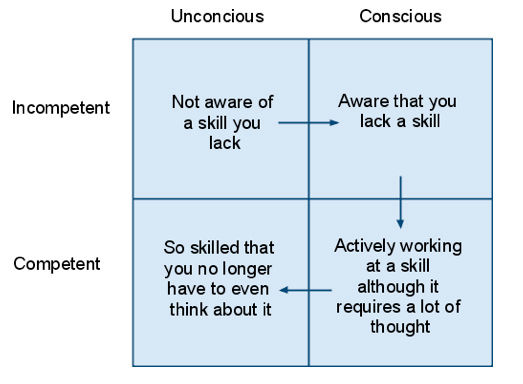Jonathan Dodd’s latest column. Guest opinion articles do not necessarily reflect the views of the publication. Ed
Here’s something magical about democracy. You can see it in the faces of different Prime Ministers at various times in their career, teetering atop the sharp point of the national pyramid. There have been many politicians who were ridiculed as Opposition Leaders, for so many made-up reasons, concerning their appearance, beliefs, habits and general demeanour. But once they win that election they seem to grow in stature, as if they have donned a magic Harry Potter cloak that alters everyone’s perception of you.
This isn’t an entirely digital change though. It depends on what sort of polling triumph they had. Sliding in under the closing door with a wafer-thin majority must feel a bit fake, and these PMs acquire a somewhat furtive look, mainly because they know that they’re going to have to spend most of their time keeping themselves afloat rather than designing and delivering the grand strategy.
Perhaps he didn’t actually have a plan
A landslide majority is a wonderful thing, but it can be daunting. I remember the Blair landslide in the Nineties, which was so huge that he could have done anything he wanted to, but he seemed to falter before the enormousness of the responsibility, or perhaps he didn’t actually have a plan. I remember many Old Labour back-benchers not understanding why he didn’t go ahead and make sweeping reforms, because it was all there for the taking.

Politicians are just like everyone else. They come in all sizes and types. Some would prefer to prepare the excuses for not being able to do things, rather than take the risk and shoulder any future responsibility for policies that don’t work. Some get rabbit-in-headlight syndrome, and simply freeze. See above. And some become reckless, believing they can do anything they like. We’ve seen all those in the last fifty years.
Everyone is speaking from the same script
I personally liked the years between 2010 and 2015, which entailed constant conversation and compromise between two parties in Government, and everything had to be examined and explained more. Since 2015 we had one party ruling again, and it seems to have gone to their heads. There’s a lot of denial around, and no dissenting voices, and everyone is speaking from the same script.

It’s interesting that no Prime Minister I’ve known who has taken the job without winning a general election looks comfortable. Gordon Brown was like that. It felt like he just needed at all costs to get there, and nothing was going to get in his way. As it turned out, he didn’t win, and he hasn’t left much of a legacy. And here we are again, with a Prime Minister by accident, mostly because she was the last one standing, keeping very quiet while all around her shot themselves in the foot.
That’s the cement under the statue’s feet
Was that clever strategising, or just a lucky break? Even Margaret Thatcher was only elected because no other candidate was strong enough or popular enough to capture enough party votes. It’s all a bit of a lottery. It was no surprise to me that an election was called recently. It was always going to be a matter of timing, no matter what the public statements said. Our current incumbent needs to win an election, personally and professionally, because that’s the cement under the statue’s feet. Without it there’s no guaranteeing resilience or respect.

I don’t think the general population quite believes the current PM yet either, and I think she knows it. The run-up to an election puts the candidates on display, in the newspapers and on television. We see them speaking and deporting themselves, we hear them being endlessly scrutinised and commented on, and they have to survive the worst the opposition can throw at them. We get to know them, and make up our minds about whether they deserve to be our leader. And that influences our attitude towards them, and our voting.
Scurrying through the shadows of life
I’ve discovered a thing called Impostor Syndrome recently. I have no idea how long it’s been around, but it’s new to me. Or at least the name’s new. I sort of understood it long ago, but it was never a fully-formed idea because I hadn’t turned it into words. Imposter syndrome is simply the feeling that we’ve arrived at a position in any aspect of life where we feel that we shouldn’t be. Somehow we’re not worthy, and we’re going to crash and burn, or we’ll be found out and shamed.

Everybody has this. It’s a perfectly normal tool in our richly-endowed mental toolkit. At its best, it keeps us grounded and prevents us getting a bit above ourselves. At its worst, it causes us to avoid any situations where we’re tested in any way, so we settle for any jobs or relationships that don’t challenge us, scurrying through the shadows of life. As a general rule, men expect to keep pushing, and don’t seem to mind so much the thought of failing this time, because they expect to keep trying, and they like the struggle and the competition. They also have a culture of ‘getting away with it’. For women, it seems to be a barrier to pushing themselves forward and achieving jobs and status they actually deserve.
Advancement through merit and hard work and deservedness
You can use imposter syndrome to characterise many situations. For instance, why are women paid less than men? Why don’t they achieve the same success professionally than men? I hear it in the language. Men are taught (or maybe it’s in the genes) to ‘go for it’. They see themselves as pushing their way through a crowd of competitors to achieve their goal, and they’ll use whatever’s to hand to help themselves. If they succeed, this then becomes the result of their own determination and doggedness. They tend not to worry about whether there might be others out there better able to do the job.

Women, in general, I think, believe that everyone should be considered objectively, and advancement should be through merit and hard work and deservedness. To many of them, the urge to succeed doesn’t reside entirely in their own efforts, as it does with men. It relies on an outside agency, which probably doesn’t exist. Someone should recognise their actual superiority for the job and the promotion should be offered to them because of this self-evident fact. For the record, I absolutely agree with this idea. The problem is that there’s very rarely a clear-sighted, self-aware and logical person in charge of the process, so whoever makes a bigger noise gets noticed first.
Of course the wrong person was promoted
I once worked in a company where there were two testing teams. One was run by a sensible woman, who put in place processes for allocating the work, calmly assessed each task, and planned ahead. Her team went home at the usual time every day and never had to do overtime or work weekends. The other team was constantly fire-fighting. Their manager cultivated around himself a frisson of panic and tension. Everything was blown out of all proportion, instructions were confusing and activity wasteful. His team were constantly working late to resolve crises that should never have arisen. They both applied for a job vacancy the next level up, and, as you will have guessed, it was given to the wrong person.

The reason was explained to us all. One manager was obviously lazy, nobody knew what she was doing. The other was practically living in the office, everyone on his team worked the most amazing number of hours, they were constantly busy resolving issues. Whoever was interviewing had no idea. Of course the wrong person was promoted. And the company lost twice. They promoted an incompetent, and the good manager immediately resigned.
Avoiding at all costs being found out
Imposter syndrome was at work here. The other side of getting yourself promoted beyond your actual capabilities is that you can be so blinded by the chase that you forget about how you’re going to do the job when you get it. Then you realise that you have no idea, and you settle into the dark side of the syndrome, which is avoiding at all costs being found out. That includes not promoting someone who might be able to see your failings and point their finger at you. And you probably have no idea that’s what you’re doing.

Many years ago I heard about the Peter Principle, which posited that nobody ever promotes someone below them in the pecking order who is cleverer than they are. The idea was that you eventually achieve such levels of incompetence that the business strangles itself. I’ve worked in several places like that. Perhaps you have too. If that describes your workplace you’re only going to get on by being loud and incompetent. Find another job. Right now.
Wouldn’t recognise where his own elbow was located
I know so many fantastic women who don’t get as far as they deserve, because they want to live in a world where their skills and accomplishments are rewarded. Sadly there’s a disconnect, usually represented by an incompetent incumbent who wouldn’t recognise where his own elbow was located. I hear a lot of advice telling women to act like men, to play the game as it is and then change it when they get to the top. But they would then be competing with a lot of men whose world this already is, and who have no idea that there’s a better way.

That’s a hateful idea. I wish I had a better answer. I would like to encourage women to be proud of themselves and their qualities, and understand that the opinions of ignoramuses are not worth listening to. I would like them to be able to stand up for what they are and what they believe, because it’s right, and because it’s the truth, and because the world would be a better place if we stop telling ourselves we’re not competent to do the job we should be doing, or pretend we should be doing a job we should never be given in the first place.
Perceptions shift with the prevailing winds
I try to look at politicians in this way too. Ignore the horrible media campaigns and look at the candidate his- or herself. Listen to what they’re actually saying. Try to see if they’re competent and confident because of understanding or skill, or whether they’re just bluffing and blustering. Watch their elbows, see if they’re poised to push people aside. See whether they say things they obviously don’t believe, or go back on what they said yesterday. See if what they say makes any sense or is just trotted out. Try to find any passion or vision in what they say. Decide if we can thrust them, the person, rather than the suit. Are they imposters?

Above all, please ignore the spin and the slanted coverage by media vested interests. You might find that the candidate who is being criticised most actually carries themselves with dignity and speaks consistently about deeply-held beliefs, while the candidate who gets all the headlines never says anything of worth. And remember that Harry Potter cloak that would transform them if they won the vote. We should behave like the wise interviewer, and select the candidate who’s most qualified and fitted for the job.
It’s not all about perception. Candidates don’t change, but perceptions shift with the prevailing winds.
If you have been, thank you for reading this.
Image: maxpixel under CC BY 2.0
Image: americanprogress under CC BY 2.0
Image: Wellcome_Images under CC BY 2.0
Image: Hajor under CC BY 2.0
Image: Rama under CC BY 2.0
Image: dapuglet under CC BY 2.0
Image: philip-rosie under CC BY 2.0
Image: pgbailey under CC BY 2.0
Image: ggvic under CC BY 2.0
Image: kladcat under CC BY 2.0




